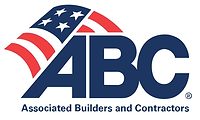ABC: Contractor Confidence Rebounds as Construction Prices Drop in August

The Associated Builders and Contractors (ABC) reports that construction input prices have decreased by 1.4% in August compared to last month, which is helping spark confidence in contractors.
Although the price drop is some welcomed relief, construction input prices are still up by 16.7% from this point last year. Nonresidential construction input prices are 16.3% higher.
"Until (Tuesday's) Consumer Price Index report, investors and other market-watchers had been delighted by recent inflation news," said ABC Chief Economist Anirban Basu. "Today's Producer Price Index report supplies additional evidence that wholesale inflation is edging lower from the highs observed earlier this year. While this may create a sense of relief among contractors, this is no time for complacency."
Basu warns that the COVID-19 lockdowns happening in China, combined with Europe facing a severe energy crisis, supply chain disruptions aren't about to let up.
"Construction materials and equipment prices are likely to remain elevated even if year-over-year price increases moderate," he said. "Public construction workers remain in short supply, including in the category of public construction. The upshot is that inflation is poised to remain stubbornly high even as some begin to declare victory. Estimators and others in the construction industry should be on guard for occasional surges in inflation during the months ahead."
The small price decreases might be fueling extra confidence in contractors. ABC’s Construction Confidence Index readings for sales, profit margins and staffing levels increased in August. The index for profit margins bounced back into the positive, while the sales and staffing level indices remained above 50, indicating expectations of growth over the next six months. Basu warns, though, that contractors shouldn't expect to pass along cost increases to project owners.
"Some contractors may be in for a rude surprise," he said. "With borrowing costs rising and risk of recession elevated, it is perfectly conceivable that project owners will become increasingly resistant to elevated charges for the delivery of construction services."
ABC's Construction Backlog Indicator remained unchanged at 8.7 months in August, according to a member survey conducted Aug. 22 to Sept. 7. The reading is a full month higher than in August 2021. Backlog is down from the levels of the second quarter of 2022 but remains higher than at any point from March 2020 to March 2022.
“The buoyancy of the nation’s nonresidential construction marketplace is really quite remarkable,” said Basu. “Rising interest rates have already driven the single-family homebuilding market into recession, but brisk nonresidential activity continues. Many nonresidential contractors are operating at capacity, and their principal frustrations relate to supply-side issues like worker shortages, equipment delivery delays and elevated materials prices, as opposed to demand for their services.”
Looking for a reprint of this article?
From high-res PDFs to custom plaques, order your copy today!






